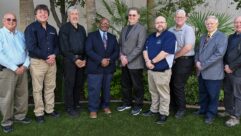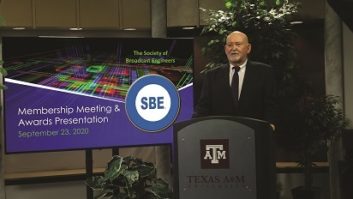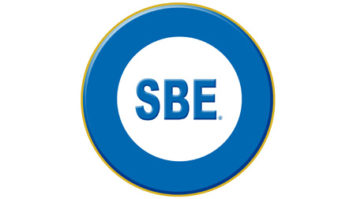Continuing education and certification
Aug 1, 2006 12:00 PM, By Kevin McNamara, CNE

Furthering your own knowledge and abilities is part of furthering your career.
The title of this article might be a little misleading, in that I am not going to take any space to talk about specific courses and certifications you might consider; instead, I want to help you identify what your long-term career plan might be, and to motivate you to take the appropriate steps by gaining the necessary continuing education and certifications to achieve those goals.
In the February 2006 issue, I wrote about the “value-added engineer.” I made a point that engineers need to gain professional certifications in as many disciplines as possible to ensure the credentials and skill sets necessary to carry them through their career and their life. I also pointed out that there are professional organizations created to support and enhance virtually every marketable skill and career path.
I believe that any continuing education path should serve two goals: to enhance skills and knowledge in your current career; and to gain knowledge and appropriate certifications and licenses that can be used, marketed and profited from, independent of your current career. In my mind the latter is the most important in the current economic climate. While these may have little to do with your current job, they could provide a viable income and alternate career path if necessary.
The reality check
Always evaluate yourself, not only for the short term (five years) but also the long term. Where do you want to be as retirement approaches? For previous generations, the common mindset was that you would stay in a particular occupation with the same employer for your entire career. It worked because employers in that day believed employees represented a valuable asset for the long-term success of a business and that it would be in their best interest to stay loyal to those individuals.
In the current environment where businesses are routinely sold or merged, that loyalty rarely exists.
Broadcasters, and particularly broadcast engineers, have witnessed mass lay-offs of seasoned engineers as a result of yet another merger. I make this point to stress that there is clearly a trend in the industry that will likely get worse as traditional broadcasters look for ways to reduce expenses to offset their revenue losses to new and emerging technologies.
This is not to say the broadcast engineer will disappear, but the role will take a different path and require skill sets well beyond that required of the traditional engineer. Look at any job description for a qualified broadcast engineer and it probably includes significant computer and networking experience. Yet I’m amazed at how many don’t even ask for transmitter experience, a fundamental requirement for most engineers.
Ask yourself these questions:
- Are you happy with your salary? Is your yearly salary increase commensurate with your contribution and where you expect it to be?
- Does your employer support your growth? (pay for continuing education or seminars relevant to your job description)
- Do you always want to be on call 24/7?
- Is your quality of life what you expect it to be?
- Are you prepared if the lay-off notice arrives?
- Are you prepared or willing to move?
- If broadcast engineering were no longer a viable career option for you, what would be next?
What now?
One of my favorite quotes from Jack Welch is “If you don’t control your destiny, someone else will.” Numerous studies have indicated that some of the most stressful situations that employees experience are when any significant change is introduced within the organization, which isn’t surprising because no one likes change. I would suggest change is positive and it ultimately provides you control your own destiny.
Important tips you should consider when choosing a certification path:
- Research classified job advertisements within industries that commonly use the service you are considering. Typically employers will list preferred certifications for the given position. This will give you a good indication of the weight a particular certification carries in the private sector.
- In some cases, there is more than one certification organization for a particular specialty. Understand which has the highest industry acceptance.
- Many certification organizations offer multiple paths/levels of specialties. You may choose to master all of them over time, but some of these paths might be in less demand and ultimately a waste of time and money.
- Several professional certification organizations maintain local chapters. Attend meetings as a guest at first. This allows you to network with people of similar interests. You can also learn a great deal about what you can expect in terms of future opportunities. Many of these groups also offer associate memberships that provide access to applicable trade magazines, shows and websites. As a bonus, many offer significantly reduced rates for books and courses.
Once you identify your path, determine what certifications or licenses are required. All of the recognized professional organizations support websites that provide detailed steps to obtaining certifications. In many cases, the certifying organization will require verification of educational or work experience as part of the certification process. There will also be costs associated with any required courses, the application and testing. Consider these costs an investment. Consult a tax professional to see if they qualify as a deduction. However, the certification process doesn’t end with meeting all the requirements and approval of your application. Be aware of the continuing education courses prescribed to maintain your status.
McNamara is president of Applied Wireless, Cape Coral, FL.












